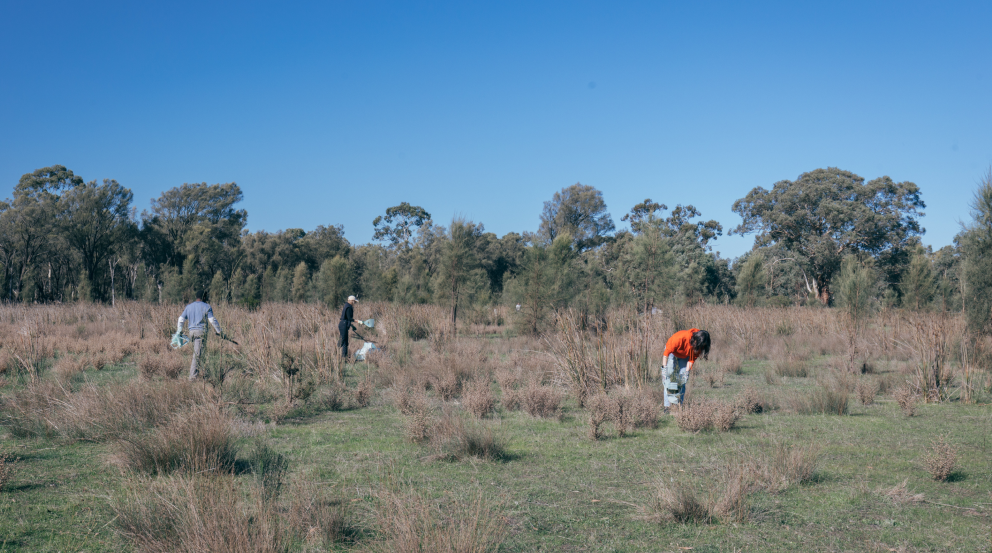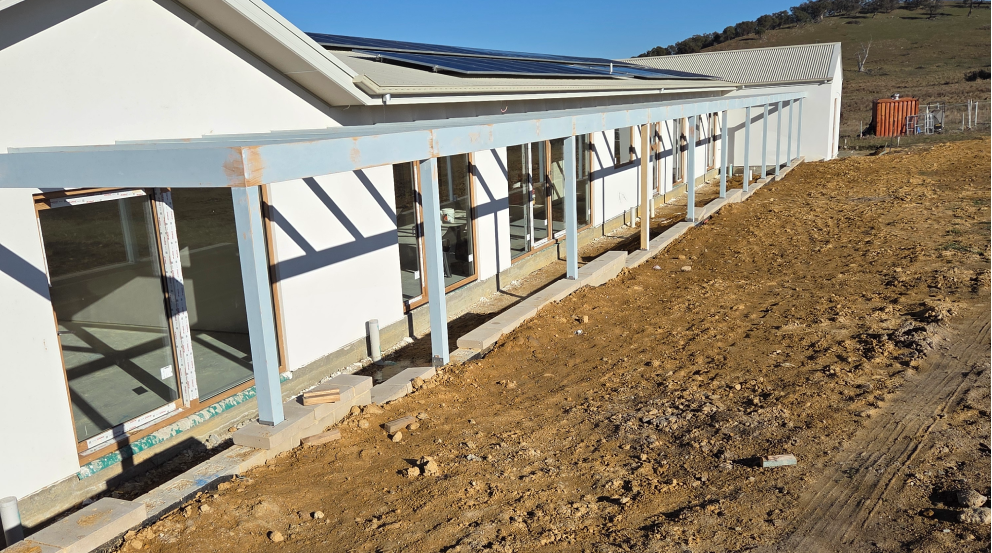Bank Australia customer Shohini Parker spends most of her days at home writing investor reports and crunching data. It’s not glamorous work, but it might just help change the world.
The funny thing about climate action is that real change – the deep, systemic, global, institutional change – isn’t very sexy, or even interesting. At least to ordinary people. It’s often people in suits, sitting in air-conditioned board rooms, looking at complicated charts and spreadsheets and calculating things like long-term financial risk exposure. This is where Bank Australia customer Shohini Parker comes in.
“It’s not the strikes in the street that give me hope,” she says. “It’s dry conversations behind closed doors, where investors are sitting down with portfolio managers and asking really sticky questions about sustainability. It’s boring – well, not to me – but this stuff is actually where a lot of really hopeful activity is happening. It’s money that’s starting to talk.”
Shohini runs a carbon transition consultancy. It’s her job to help big business respond to climate change and transition away from carbon-heavy activities. This is often quite tricky. Large corporations are used to doing things a certain way, and some business models are tough to unravel, especially if they have long supply chains or ties to the resources sector.
.webp)
How do you get big mining companies to commit to net zero emissions? How do you effect change on an industrial scale? What motivates big investment groups? And who works behind the scenes to build the ‘business case’ for decarbonisation? At the pointy end of climate change action, there are people like Shohini - asking the hard questions investors will want answers to, and quietly plugging away in spreadsheets.
“When people asked me what I did for a living, I used to say I was a ‘management consultant’,” Shohini says, “in case I got that look, you know. But now, when I tell people what I actually do, invariably the answer is super positive and interested. That was not the case when I started in climate. In the last two or three years, I’ve seen massive change in business coming to the table.”
Shohini actually began her career in the resource sector, working for ExxonMobil as a graduate engineer. It’s given her an interesting take on the traditional ‘Us vs Them’ climate wars. The challenge, she says, is empathy. You need to put aside the harmful stereotype that the resource sector and carbon-heavy businesses and big corporations are all inherently evil. They’re actually full of good people doing their best; they just see the world through a different lens at times.
“I talk a lot about insurance,” she says. “It’s a sector that’s filled with extremely rational thinkers that have models on computers which don’t code in emotions and fears and political views. Superannuation and investment management funds are in the same boat. They’re pragmatically looking at long term risk factors, including what climate change will really mean for their returns. These areas are actually where a huge groundswell of climate movement is coming from.”
Insurance and investment policy statements might not be very glamorous stuff, but it is important stuff. And banking is the same. Shohini says by focusing on the things we can control as individuals – “your super, your bank, your own lifestyle, your emissions footprint and the way you raise your children” – we can help drive huge, global change. In fact, money is by far our most powerful weapon in the battle to save the planet. “I was on Future Super's website the other day,” Shohini says, “and it's like for every 34 people that switch to Future Super, that represents $1 million less that's invested in fossil fuels. It can be really empowering.”
.webp)
Institutional change takes time. You have to see it as the slow accretion of little wins. But Shohini says she’s definitely seen huge progress over the last 10 or 15 years. As a society, we’re much more aware of our financial responsibilities and where our money is going. It’s easy now to move your super, swap your bank, or see exactly what financial institutions are doing with your money. That’s putting huge pressure on global investment groups and superannuation funds to invest in genuinely sustainable industries. And that’s putting the pressure where it should be – on companies – to decarbonise and smarten up their act, before all the money goes away.
“These are massive organisations with a weight of shared culture and history that’s very difficult to shift,” Shohini says. “Think of it like a giant cargo ship that's being slowly steered in the right direction, one micro degree at a time. It’s slow progress, but you look back after 10 years and there’s no doubt, we’ve come a long way.”
Find out more about Shohini’s work right here.
.webp)







